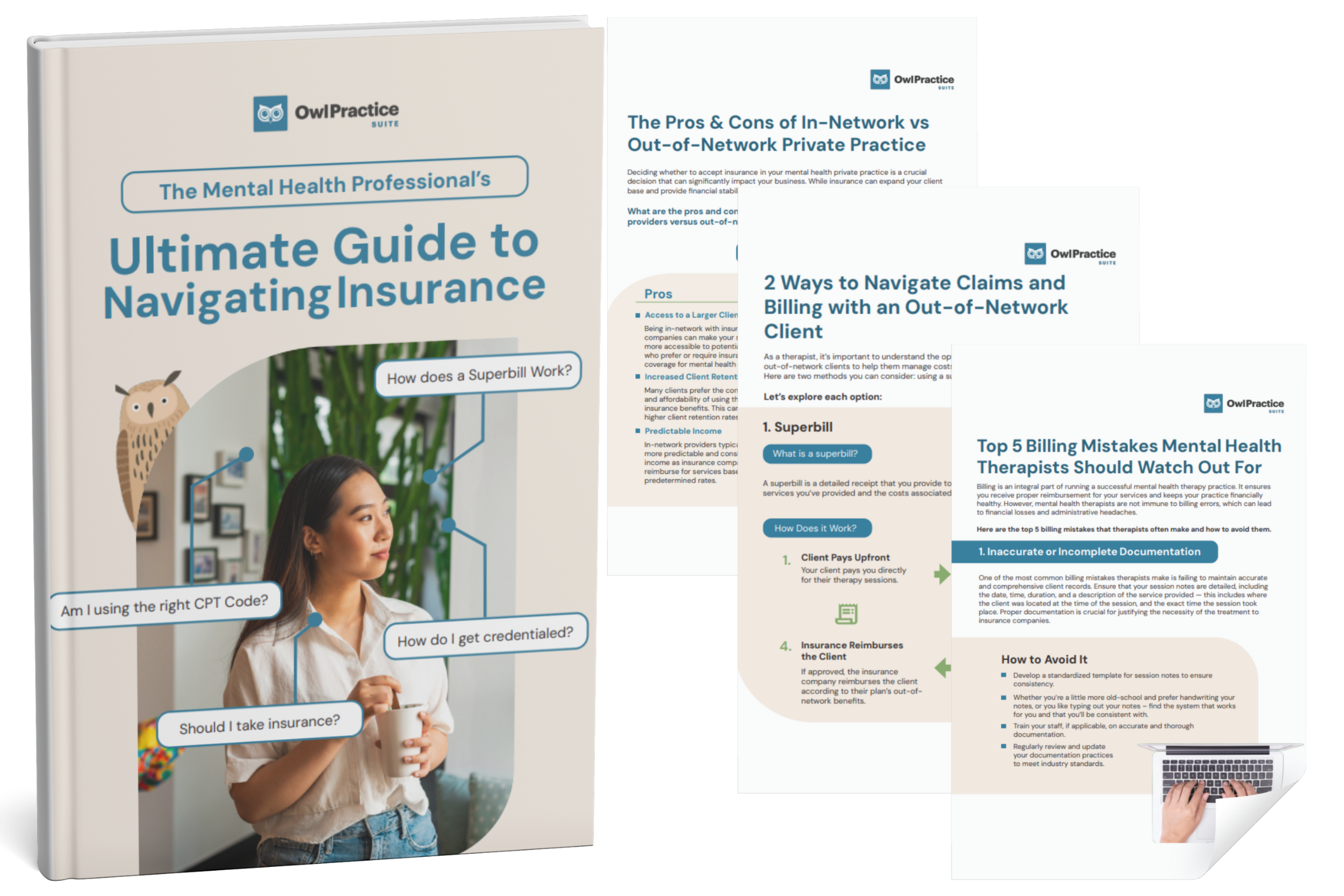Below we discuss crucial strategies for managing mental health private practices. We emphasize the benefits of using clearinghouses to streamline billing and reduce errors, while also outlining essential accounting practices such as separating personal and business finances, maintaining accurate records, budgeting, and consulting financial professionals. These combined insights aim to enhance both administrative efficiency and financial health in mental health practices.

Are Clearinghouses Right for Your Private Practice?
Managing the billing process in a mental health private practice can be complex and time-consuming. To streamline this essential aspect of your practice, you may consider using a clearinghouse. A clearinghouse is a service that acts as an intermediary between your practice and insurance companies, facilitating the electronic exchange of claims and payments.
In this article, we will explore whether clearinghouses are the right choice for your mental health private practice.
What Is a Clearinghouse?
A clearinghouse is a third-party service that acts as a bridge between healthcare providers, including mental health therapists, and insurance companies. It receives claims from providers, scrubs them for errors or inconsistencies, and then submits them electronically to insurance companies. It also receives electronic remittance advice (ERA) and electronic funds transfer (EFT) for payment reconciliation.
Pros of Using a Clearinghouse
Efficiency: One of the primary advantages of using a clearinghouse is the efficiency it brings to the billing process. Clearinghouses can process claims faster and more accurately than manual submissions, reducing the risk of errors and delays.
Error Checking: Clearinghouses often have built-in error- checking tools that help identify and correct errors in claims before submission, reducing the likelihood of rejected claims.
Consolidation of Services : Clearinghouses can centralize various administrative tasks, such as verifying client eligibility, processing claims, and managing rejections and denials.
HIPAA Compliance: Reputable clearinghouses adhere to the Health Insurance Portability and Accountability Act (HIPAA) requirements, ensuring the security and confidentiality of client data.
Cons of Using a Clearinghouse
Cost: Clearinghouses charge fees for their services. While the cost may be offset by a reduced administrative burden and increased efficiency, it’s essential to factor this expense into your practice’s budget.
Loss of Control: When you use a clearinghouse, you relinquish some control over the billing process. While this can be advantageous in terms of efficiency, it may make you dependent on the service provider’s performance.
Considerations for Mental Health Private Practices
Whether a clearinghouse is right for your mental health private practice depends on several factors:
- Practice Size: Smaller practices with fewer clients may find it more cost-effective to handle billing manually. Larger practices with a high volume of claims may benefit more from a clearinghouse’s efficiency.
- Administrative Capacity: Assess your practice’s administrative capacity and staff resources. If you have limited staff or time to handle billing tasks, a clearinghouse may be a valuable resource.
- Complexity of Claims: If your practice deals with multiple insurance providers and complex claims, a clearinghouse’s error-checking features can be invaluable.
- Budget Considerations: Evaluate the cost of using a clearing- house in comparison to the potential time and resources saved by automating billing.
Summary
The decision to use a clearinghouse in your mental health private practice should be made after a careful assessment of your specific needs and circumstances. While clearinghouses offer efficiency and error-reduction benefits, they come with costs and a degree of reliance on an external service.
Consider your practice size, administrative capacity, complexity of claims, and budget to determine whether a clearinghouse is the right choice to streamline your mental health billing process.

Get the “Ultimate Guide to Navigating Insurance” eBook Below!
Reduce clinical administrative tasks and transform more lives with Owl Practice. Owl Practice provides all the tools you need to make your practice successful. Join the thousands of care professionals using Owl to run their practice every day.



